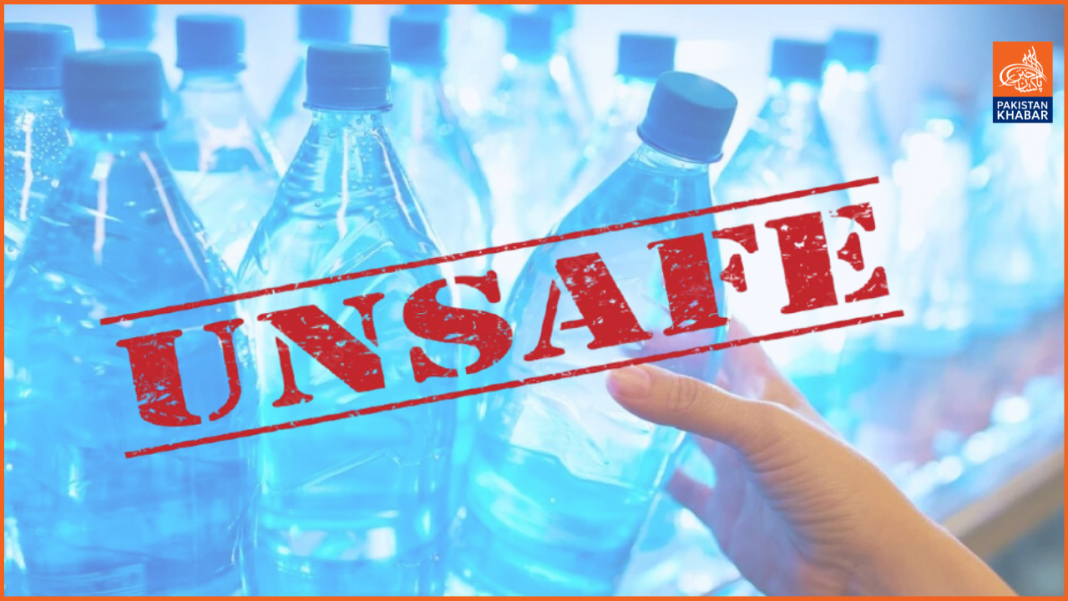A recent investigation by the Pakistan Council for Research in Water Resources (PCRWR) has raised serious concerns about the quality of bottled water available in the country. Their findings reveal that 28 brands are unsafe for human consumption due to either microbiological or chemical contamination.
The PCRWR tested 176 samples of bottled water collected from 20 cities across Pakistan. Among the contaminated brands, ten were found to have excessive levels of sodium, which can harm individuals with certain health conditions. Brands such as Miran Drinking Water, Neo, and Aab-e-Dubai were part of this group.
Five other brands, including One Pure Drinking Water and Indus, showed dangerously high levels of arsenic, a toxin that can cause severe health problems over time. Additionally, a brand named Hunza Utter Water contained potassium levels that exceeded the permissible limit.
Shockingly, another 16 brands were found contaminated with harmful bacteria. These include popular names like Pure Water, More Plus, and SS Water, making them particularly dangerous for consumption.
The report underscores the importance of stricter regulations and regular testing to ensure public safety. Access to clean drinking water is vital for human health, and consumers depend on bottled water for convenience and safety. Unfortunately, such findings highlight a gap in quality control within the industry.
Experts emphasize the need for awareness among consumers to recognize trusted brands and question those that fail to meet safety standards. These revelations also urge manufacturers to prioritize public health over profit by adhering to the Pakistan Standards & Quality Control Authority (PSQCA) guidelines.
Water is essential for life, and its quality directly impacts our well-being. This wake-up call from the PCRWR reflects a broader issue regarding water safety in Pakistan. For consumers, the key lies in staying informed and vigilant about the products they purchase.




